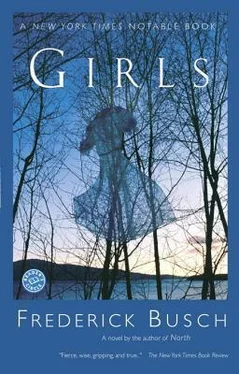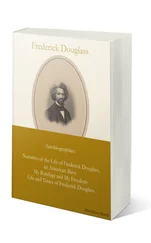I thought, We could dig here forever. Then I thought, No, only until full spring. All we had to do was wait. But we couldn’t. We wanted our girl back.
Everyone wanted someone back. It would be a hundred degrees of dry heat and I would be in an air-conditioned motel in New Mexico called the Arroyo, a little less than a year from now, and all those miles from the field we worked in that looked as big to me as North America, and I would still want our Hannah back, and so of course would Fanny. Mr. Tanner would be alone with only his church and his jokes and his heaven, wanting back his wife, who watched us now, wanting back the daughter we were reaching for under the snow. And Rosalie, who is a better cop than I am, would find me in my hiding place and get me talking on the phone.
Are you eating well? Are you sleeping well? She would stay on my trail. She would find me. She would call. And I would begin to suspect myself of counting on her. The phone would ring, and when I answered, I would hear the distance behind her voice and begin to regret it, and then Rosalie would say my name.
In this winter, though, in the field behind Randy Strodemaster’s house, I leaned on the shovel. I was looking at Fanny, who talked while Archie listened. I wouldn’t ask them where he had gotten her from, Virginia’s place or ours. Wait and see, I told myself. I knew I couldn’t. Look at me and these other people, what we were doing when all we had to do was wait and see.
I went back to work and then I had to stop again. When I looked toward the road, I saw Archie with his hands in his pockets. Fanny was gone, and so was her car. I wasn’t completely sure I could move anymore. I made my fingers close around the shovel. I made myself breathe the short, choppy breaths, and I scooped some snow.
I thought I should remember to tell the Tanners about the physics book in her shelves. I didn’t think of it, I would tell them. I would mention Rosalie and it would please them, I thought, knowing that a stranger had pondered so hard about their child. They would want to know it was maybe another clue. Rosalie had been certain Janice wouldn’t have taken physics, since she’d been less than capable with numbers. Strodemaster gave her the book, since numbers were what he knew — Rosalie was sure of it. Teachers do that kind of passing their books along to kids. The young are so lucky, I thought. We so love teaching them. I would want to ask Archie why a little girl would buy her underwear in a fuck-me clothing store for a man like Strodemaster. Maybe I would also ask Rosalie. I felt like I needed an expert to tell me about anything human, though on all other information, I was absolutely informed. I wondered where Fanny had gone. I wondered if Strodemaster’s wife had moved out because of something with him and his daughter. It could happen, I thought. I leaned over to spit onto the snow and moved it off behind me where somebody breathing hard was moving it farther away.
People were talking, but not very much, and I could hear the rushing sound of the big fire back near the barn. The dog sat very still, watching the hole slowly grow. He was getting ready.
Here’s what I thought. I thought about Ralph. I thought, Once upon a time.
I made myself work. I was like the others. Whether we believed in spring or not, we did not want to wait. If you watched us from above us, you would have seen it. Spring or not, ribs or not, fingers or not, we were going to move the entire field.
Girls byFrederick Busch. A Reader’s Guide
A Conversation with Frederick Busch
Q: Upon finishing the book, I recalled the first chapter, which I then re-read. I realized that it now felt like the “last” chapter. What was your plan with this design?
A: I first wrote the book going from the beginning of chapter two to the end. And I was dissatisfied — as I worked on the beginning — with plunging the reader too quickly into so much grimness. And although the first chapter doesn’t make you sing, it has a little bit of humor to it, and it seems to me to help set the scene for who this man was, and whom he became, and to give the reader … the slight sense there was hope for him after the events of the book.
Q: Why not bring Jack and Fanny back together? They clearly loved each other.
A: Because people who so clearly love each other nevertheless do not always know how to live together. That’s reason one. Reason two is the plot I created made it impossible to bring Jack and Fanny back together. The only way they can live together is for her to not think he killed their baby. The only way they can live together is for him to not know she killed their baby. Now how can you undo those two things? I wanted it to be a kind of paradox: He loves her so much he takes the blame for what she did, to the point where she can’t take him because of it. And she can’t take what it does to him: It makes him a very bitter and difficult man.
I loved Fanny, and I wanted him to stay with her more than my readers imagined … [the short story] “Ralph the Duck” appeared in 1989 … and became chapter two. And you see Fanny is a little softer in that story, a little less self-protective, more accessible to Jack. I wanted Jack and Fanny to have a possibility of happiness. But they kept returning to me, and the more I thought about them, the more I wondered, why had Jack made her cry? A lot of people noticed her sorrow, so I must have made her sad without intending to make her quite that sad. I learned from my readers who Fanny was, and I began to want to know about her sadness. Whenever a storyteller wants to know something, he or she tells a story to find out the answer.
Q: Let’s talk about the dog. A great dog.
A: Good, I liked him, too.
Q: Why no name? Why a chocolate Lab? And how on earth did you manage to get into its chocolate head so well?
A: It had no name … I hadn’t given him a name for a couple of chapters — I realized that suddenly I was used to hearing Jack refer to him as “the dog.” And I thought, “Wow, I’d better give him a name,” and then I thought, there is no name Jack could give him. Jack is a man who is unable to name his dog. And that tells us a lot about him. He’s a guy who can’t say “I love you,” who can’t say “Fanny, let’s go to counseling together.” Because he doesn’t quite believe in speech. He’s not a man of words. He’s absolutely a man of actions and thoughts. It’s the other people around him who are people of words.
How do I get inside his head, and why a chocolate Lab? I’ve always wanted to have a chocolate Lab and never did, so I decided it was time to have one. Also, Judy and I have always had two and sometimes three Labradors, and they’ve always been black. And I didn’t want to make the dog in the book a black Lab because if my Labradors ever got wind of it, they might be embarrassed. So that’s why it’s a chocolate Lab. And how did I get inside his head? Because we’ve lived with Labradors for about thirty years.
Q: Girls examines the darker side of life. Why?
A: I live in a dark part of the country. My ancestors come from a dark part of the world, which is Russia, and I am a serious artist, which means that what I am looking to understand is the bad news, not the good news. I think by and large if you distinguish between serious writing and not-so-serious writing, you would find that the serious writing — even though it might be a love story — [has] room in the book for darkness, for bitter moments, because I think it is that side of life that the artist tries to explore. There are moments of joy, and he or she may bring explosions of joy to the page; but by and large I think our responsibility is to explore the more frightening moments on behalf of our readers. I think that’s why they may value us, if they do.
Читать дальше










